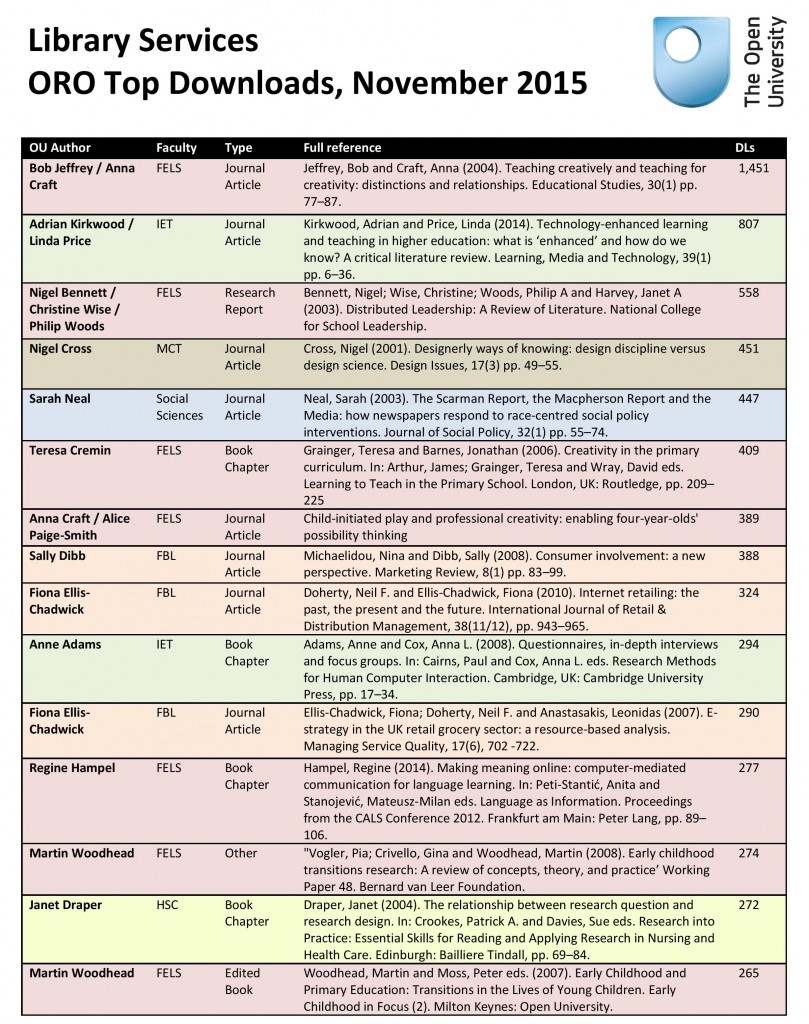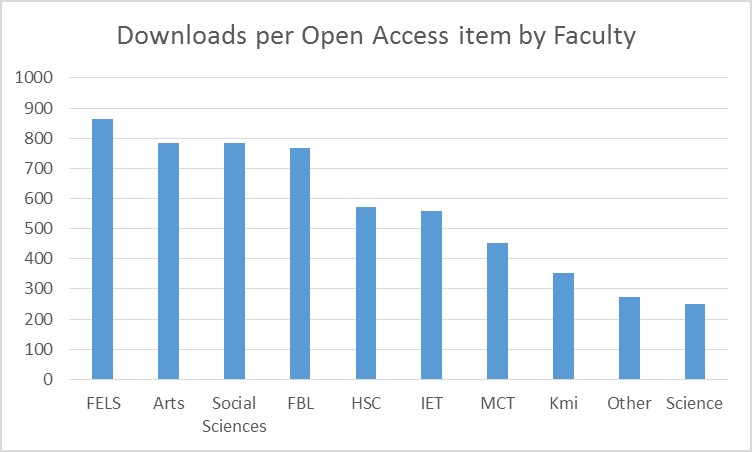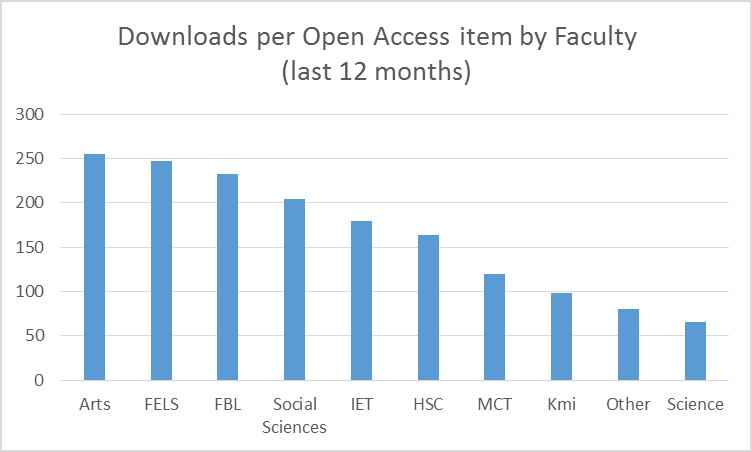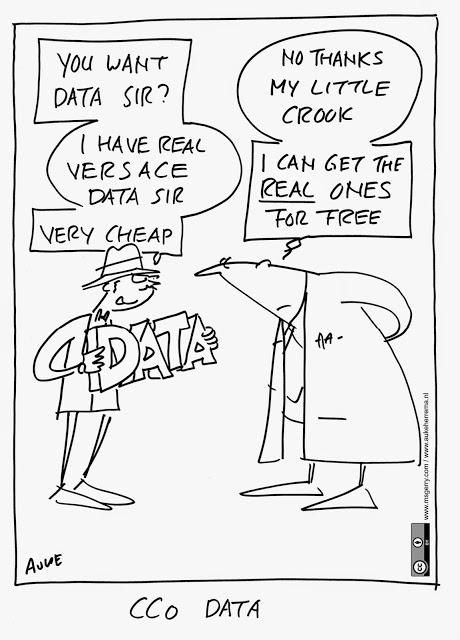The November top downloads from ORO can be found below. The pink colours show a lot of items from FELS, when I generate this report I often reflect on how Institutional Repositories best work for those disciplines that aren’t served by Subject Repositories like arXiv (Physics, and others Science disciplines) and RePEc (Economics) to name but two.
So I looked back at the last 12 months Top 15s and found that FELS indeed had the most appearances in the Top 15: 67 in fact, 35% of all items appearing in the top 15 lists were from FELS.
And then I started thinking whether there was any correlation between the faculty and the number of downloads an ORO Open Access item attracts. My thinking was that if an item is only available via ORO it will attract more downloads than something that is also in a subject repository. So I worked out downloads per Open Access item by faculty, and this is what it looked like:
FELS top of the list, but closely followed by other disciplines in the Arts, Humanities & Social Sciences (AHSS). Interestingly the downloads split neatly along AHSS & Science, Technology, Engineering and Mathematics (STEM) faculties. My interested piqued, I checked this by looking at downloads over the last 12 months (maybe, I thought, some faculties had engaged earlier with ORO and had been accruing downloads over a longer period of time). But the pattern was the same, maybe even more marked.
AHSS Open Access items in ORO get more downloads per item than STEM publications.
Well that partly confirmed my thinking about institutional repositories working best where subject repositories don’t exist, the exception being Social Science Research Network, … but I think there is something else here.
There is often a discrepancy made between Open Access in AHSS and STEM, AHSS struggling to fit their modes of scholarly communication (e.g. monographs) into an Open Access landscape defined by STEM disciplines (e.g. high cost journals and high Article Processing Charges). And I’m sure this is at least partly true. However, these ORO figures show a demonstrable appetite for Open Access in AHSS and maybe Institutional Repositories have a key role to play in delivering Open Access in AHSS?
PDF of November Top 15: NovemberTop15






